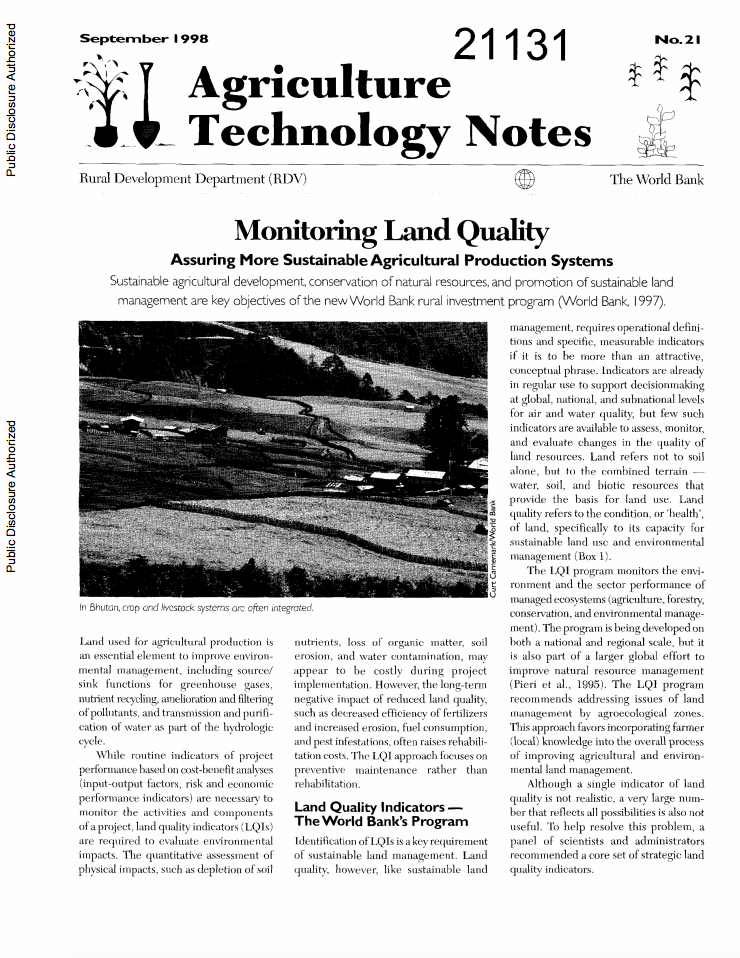Using farmers' knowledge for defining criteria for land qualities in biophysical land evaluation
The objective of this paper is to present a way of complementing empirical results with farmers' perceptions in defining limiting biophysical land properties in a land suitability evaluation using the FAO framework methodology. The farmers' perceptions were identified using rapid and participatory rural appraisal (RRA/PRA) tools. The study catchment, having a semiarid continental climate and located on the Loess Plateau in northern China, covered an area of 3.5 km2. Most of the land users were dependent on subsistence agriculture.
Controlled adaptive natural resources conservation
Increasing world population and the depletion of natural resources due to imbalances in development necessitates a new approach to development and the use of natural resources. Controlled adaptive planning, design, and judicious management of these precious resources seem to be a more logical approach towards resource conservation and sustainable development. This requires careful consideration and understanding of all attributes of a proposed site in order to suggest the appropriate form of development that will be in harmony with existing natural forces acting on the site.
SIAT - Sistema de Avaliação de Terras
The purpose of this work was to adapt the MicroLEIS - Land Evaluation Information System developed in Spain to the Brazilian Southeast conditions. Twelve (12) variables were considered, as follows: A - Relief Factor: 1) Slope; B - Soil Factor: 2) Effective depth, 3) Texture, 4) Stoniness, 5) Drainage, 6) Salinity; C - Erosion Factor: 7) Erodibility, 8) Slope, 9) Vegetation density, 10) Rainfall erosivity; D - Bioclimatic Deficiency Factor: 11) Frost, 12) Available water. For each of them, the control parameters were changed, according to conditions of the soils of the State of São Paulo.
A Global Mapping System for Bambara Groundnut Production
Réforme agraire: Colonisation et coopératives agricoles 2000/1
Issues relating to land and land reform have been moving up the agenda of rural poverty and food security in recent years with the increasing acceptance that the prerequisites for broad-based and equitable development include the essential need for people to have access to land and other natural resources. Access needs to be on an equitable basis allowing the poor and the disadvantaged, including women, to secure the assets needed for them and their families to generate sustainable livelihoods.
AEZWIN: an interactive multiple-criteria analysis tool for land resources appraisal
Monitoring land quality : assuring more sustainable agricultural production systems
Identification of Land Quality Indicators (LQIs) is a key requirement of sustainable land management. They are required to assess, monitor, and evaluate changes in the quality of land resources and environmental impacts. The Land Quality Indicator (LQI) program monitors the environment and the sector performance of managed ecosystems. The program is being developed on a national and regional scale, but it is also part of a larger global effort to improve natural resource management. The LQI program recommends addressing issues of land management by agroecological zones.



